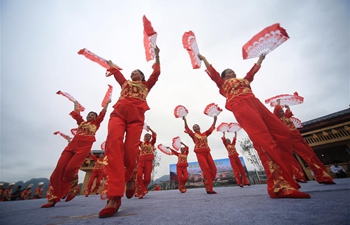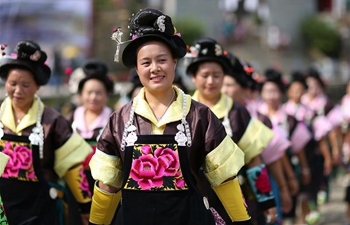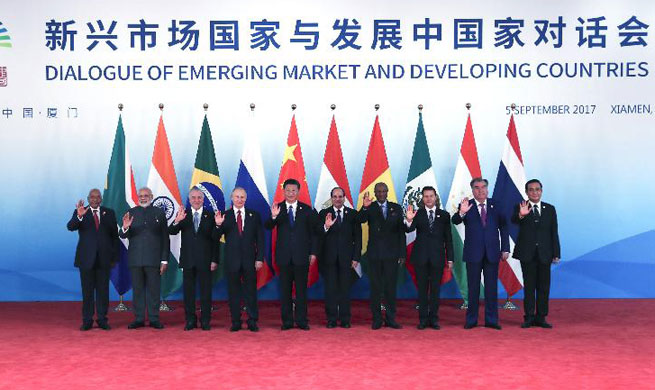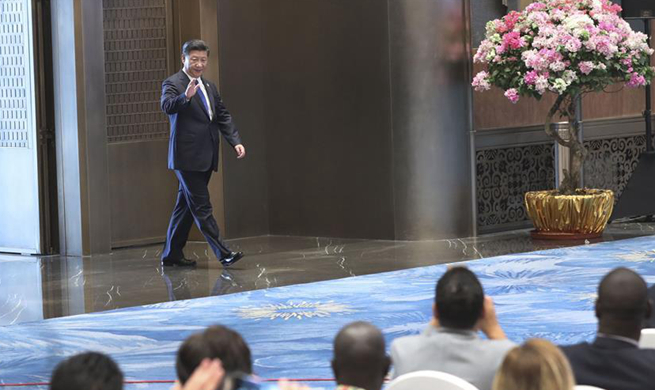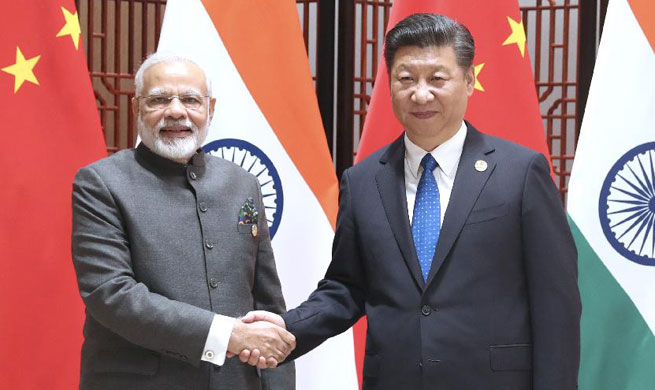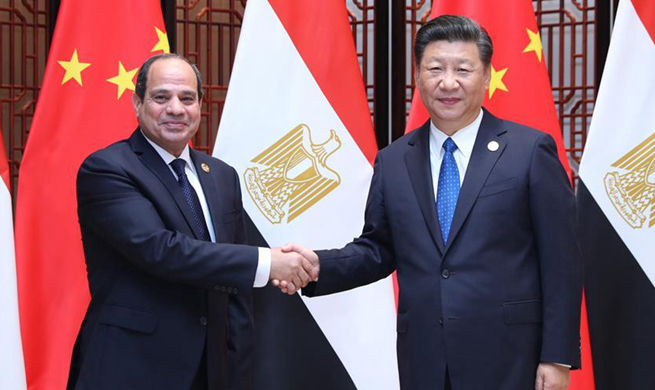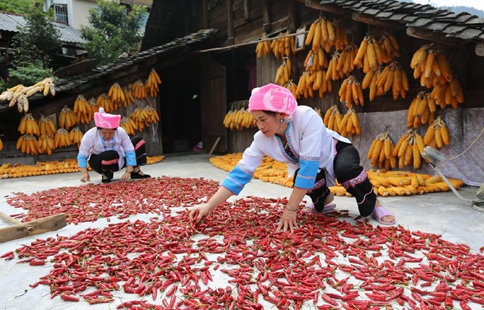by Mahmoud Fouly, Emad al-Azrak
CAIRO, Sept. 5 (Xinhua) -- The latest BRICS summit in China achieved a noticeable success and managed to provide a roadmap for boosting cooperation among developing countries, said Egyptian experts.
The ninth summit of the bloc including Brazil, Russia, India, China and South Africa was held on Sept. 3-5 in southeastern Chinese coastal city of Xiamen, with the participation of five developing states, namely, Egypt, Guinea, Mexico, Thailand and Tajikistan at the invitation of China to convene for the Dialogue of Emerging Market and Developing Countries on the sidelines of the event.
A BRICS Business Forum was also held on the sidelines of the summit with the participation of some 1,200 heads and representatives of about 600 companies, business organizations and financial institutions.
"Xiamen's BRICS summit has achieved an unprecedented success, particularly by its concluding declaration that is considered a roadmap for cooperation among all states," said Ali al-Hefni, former Egyptian foreign minister and former ambassador to China.
"Being held in China helped make it a success, for China provided it with all means of success as it did with the preceding G20 summit last year," the ex-diplomat told Xinhua.
The expert believes that the "BRICS Plus" proposed by China by inviting five developing states from three continents, namely, Africa, Asia and Latin America, was among the factors of success for the event in general, as it boosted dialogue and discussion about cooperation between BRICS countries and other developing states.
The BRICS summit with the 10 participant states is believed to have provided an opportunity for their leaders to elaborate on the economic conditions and challenges of their countries and the joint investments that can be reached among them.
As a developing state and an emerging economy, Egypt participated in the economic platform under the "BRICS Plus" mechanism where Egyptian President Abdel-Fattah al-Sisi and his accompanying delegation represented the most populous Arab country.
"There is no doubt that Sisi's participation and the talks he held on the sideline of the summit gave him a chance to firstly present Egypt's vision and recommendations to enhance future partnerships among Egypt, the BRICS group and developing states within the framework of South-South cooperation," Hefni commented.
Chinese President Xi Jinping, who vowed that China will always firmly support Egypt's efforts to maintain stability and accelerate development and to advance the comprehensive strategic partnership with the Arab country, met Sisi on Tuesday.
"It was a very important opportunity for Egypt to join the BRICS summit for the first time at China's invitation, which reflects mutual appreciation between the two countries," said Ahmed Qandil, an expert of Asian affairs and head of the Energy Studies Program at Cairo-based Al-Ahram Center for Political and Strategic Studies.
Qandil said that Xiamen's declaration at the end of the BRICS summit could be a roadmap for cooperation among the participant developing states in particular and South-South cooperation among developing countries in general.
The declaration condemned all sorts of terrorism and all terror groups across the world, calling for a comprehensive approach in combating terrorism that includes countering radicalization, recruitment and movement of terrorists.
"This BRICS anti-terror call is highly appreciated, as without combating terrorism, development and stability cannot be maintained," Qandil told Xinhua, urging collective international effort and coordination to uproot "the cancerous phenomenon."
The expert believes that U.S. President Donald Trump's "America First" policy has sent a warning message to the whole world against commercial protectionism that may inflict on the world economy and increase economic suffering particularly for developing states.
The BRICS leaders promised in Xiamen's declaration that they will continue to firmly oppose protectionism.
"We recommit to our existing pledge for both standstill and rollback of protectionist measures and we call upon other countries to join us in that commitment," they said, emphasizing the importance of an open and inclusive world economy which enables all countries and peoples to share the benefits of globalization.





